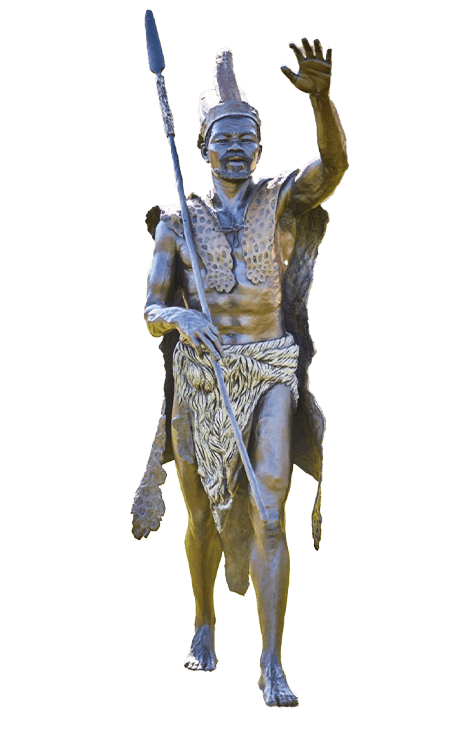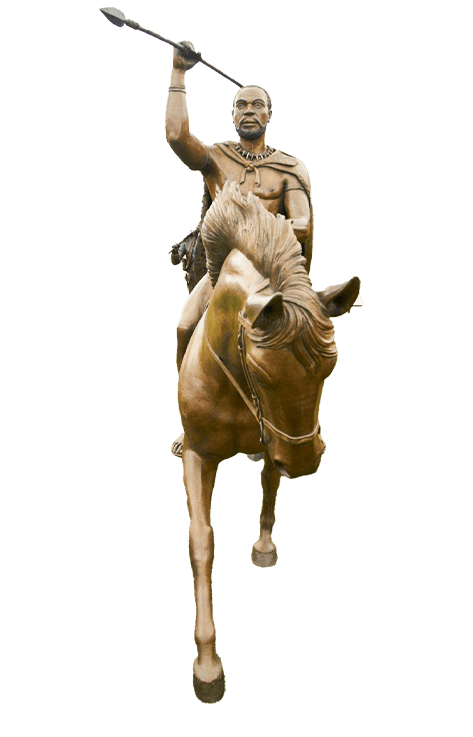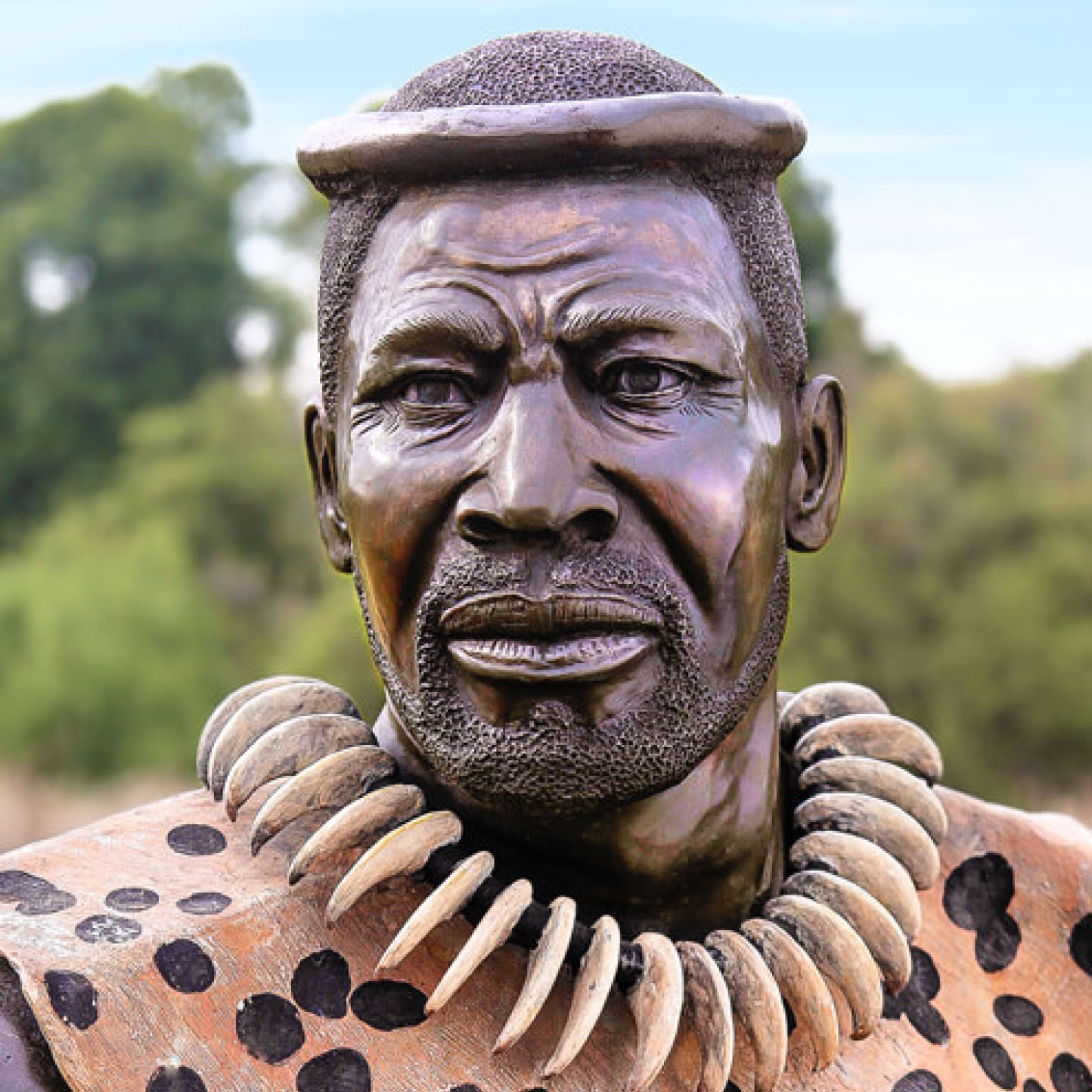
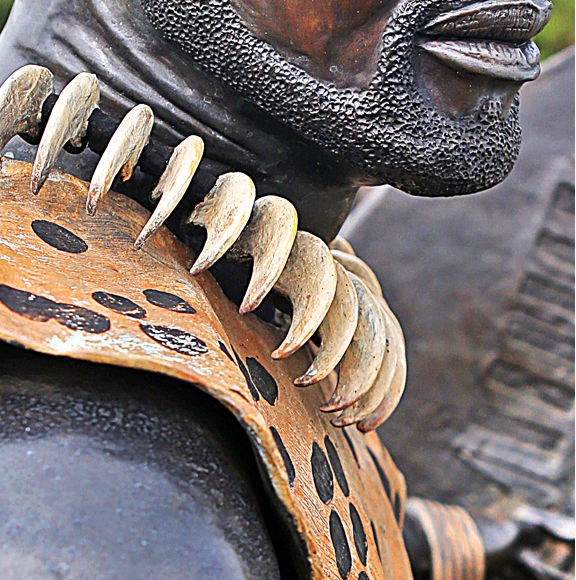
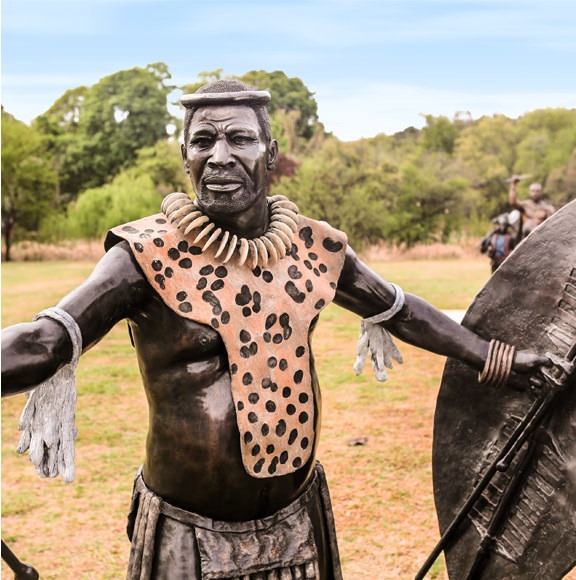
"I see that every white man is an enemy to the black, and every black man an enemy to the white, they do not love each other and never will."
King Dingane to missionary interpreter Richard Hulley, February 1838
King Dingane Ka Senzangakhona
1795 - 1840
King of the Zulus
King Dingane was the son of Senzangakhona and his sixth Queen, Mpikase. He reigned from 1828 after conspiring in the assassination of his half-brother Shaka, who in the early 1800s united numerous clans and tribes into the Zulu Empire.
After he became king, Dingane tried to obtain popular support for himself by ending conflicts in the area, but found it difficult to control the huge army he had inherited. He renewed Shaka's military policies and launched campaigns against his neighbours, including sending his army far north in the country against King Mzilikazi's Ndebele. However, none of his ventures were major successes.
His greatest problem in maintaining the strength of his Empire was the influx of Europeans into what is today KwaZulu-Natal. Shaka had already granted land to European traders at Port Natal (now Durban), and Dingane allowed European missionaries into the area in 1834, though they would not have much effect during his reign. It was the Boer farmers, trekking North, away from the British administration in the Cape Colony and looking for new territory, who would pose the biggest threat and ultimately cause the demise of Dingane.
In February 1838, Dingane ordered the killing of Boer leader Piet Retief and his party in his capital, uMgungundlovu, near Ulundi. After further numerous clashes, Dingane's army was beaten at the Ncome River on December 16th, 1838, in what was to become known as the Battle of Blood River.
The Zulu army suffered disproportionate losses to Boer firepower during the battle. The following year, Dingane's half-brother, Mpande, took thousands of Zulu south to partner with the Boers. The allied forces of Mpande and Boer leader Andries Pretorius defeated Dingane's army near the Pongola River in northern KwaZulu-Natal in 1840.
Dingane then fled north into Swaziland, where it is believed he met his death at the hands of the Nyawo, his old enemy, in the Lebombo Mountains.
